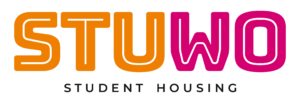Weaknesses in a Job Interview: Helpful Tips for a Convincing Self-Presentation
Written by Kerstin Lakits, Jan 11, 2024
Almost every job interview includes questions about your weaknesses. This question can easily throw you off balance. However, the right preparation allows you to use this topic to your advantage and impress the recruiters or your future boss. So, you should reflect beforehand “What are my weaknesses?”. Furthermore, you should figure out how to phrase your weaknesses in the work interview. In this article, we are going to explain the preparation process, self-reflection and presentation of your weaknesses in a job interview!
Table of contents:
- Personal Weaknesses in a Job Interview: Why Are They Asked About?
- The Art of Perception: How to Identify Hidden Questions About Weaknesses in a Job Interview
- Weaknesses in a Job Interview: Why You Shouldn’t Provide Standard Answers
- Properly Preparing Before the Interview: How to Identify Your Personal Weaknesses and Discuss Them Confidently
- List: Potential Weaknesses in a Job Interview
- Responding Correctly: How to Communicate Your Weaknesses in a Job Interview
- Avoiding Mistakes: Don’ts When Mentioning Weaknesses in a Job Interview
- The Right Number: How Many Weaknesses Should You Mention in a Job Interview?
- Self-Criticism as a Strength: The Benefits of an Authentic Presentation of Weaknesses in a Job Interview
- Strengths in a Job Interview: Your Time to Shine
- Conclusion: Leveraging Weaknesses in a Job Interview as Strengths





